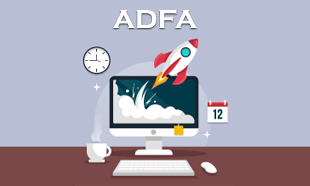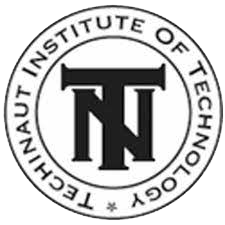0
The Advance Diploma in Financial Application (ADFA) course offered by Digital Binary Computer Institute, a Techinaut Institute of Technology franchise, …
The Advance Diploma in Financial Application (ADFA) course offered by Digital Binary Computer Institute, a Techinaut Institute of Technology franchise, serves as a comprehensive program designed to equip individuals with essential skills and knowledge in financial management using computer applications. This one-year course covers various topics, from basic computer proficiency to advanced financial software such as Tally. This article provides a detailed overview of the ADFA course, including its curriculum structure, key modules, and the significance of this program in preparing students for careers in finance and accounting.
1. INTRODUCTION:
In the modern era, proficiency in financial management coupled with computer literacy is crucial for success in finance and accounting. Digital Binary Computer Institute, situated in Almora, Uttarakhand, recognizes this need and offers the Advance Diploma in Financial Application (ADFA) course. As a Techinaut Institute of Technology franchise, it ensures quality education and practical training to students aspiring for careers in finance and accounting.
2. CURRICULUM STRUCTURE:
The ADFA course is structured to provide a comprehensive understanding of financial management principles and their application using computer software. The curriculum encompasses various modules, each focusing on specific aspects of financial applications. The following are the key modules covered in the one-year duration: 2.1. Basics of Computer:
- Introduction to computers and their components
- Basic computer operations and terminology
- Understanding hardware and software
- Introduction to operating systems
- Recognizing the importance of computers in finance and accounting
- Ethical considerations in computer usage in financial applications
- Impact of technology on financial management
- Architecture of a computer system
- CPU, memory, and storage devices
- Data representation and binary arithmetic
- Understanding computer networks
- Fundamentals of operating systems
- File management and directory structures
- Process management and multitasking
- Introduction to system security
- Introduction to Microsoft Word
- Document creation, formatting, and editing
- Working with templates and styles
- Collaboration features and version control
- Overview of Microsoft Excel
- Data entry and manipulation
- Formulas, functions, and calculations
- Data analysis and visualization tools
- Introduction to Microsoft PowerPoint
- Creating, editing, and formatting presentations
- Adding multimedia elements and animations
- Effective presentation delivery techniques
- Understanding the basics of the internet
- Internet protocols and communication techniques
- Web browsers and search engines
- Internet security and privacy
- Basics of electronic mail (e-mail)
- E-mail protocols and addressing
- E-mail etiquette and management
- Using e-mail for professional communication
- Understanding Tally software and its features
- Installation and configuration of Tally
- Navigation through the Tally interface
- Creating and managing company profiles
- User management and access control in Tally
- Setting up security features in Tally
- Backup and restore procedures
- Creating and managing groups and ledgers in Tally
- Understanding voucher types and their significance
- Recording transactions using vouchers
- Understanding cost centres and cost categories in Tally
- Allocating expenses to cost centres
- Analyzing cost centre-wise performance
- Basics of budgeting in Tally
- Creating and managing budgets
- Monitoring budget performance
- Understanding various types of vouchers in Tally
- Creating and recording vouchers
- Editing and deleting vouchers
- Managing multiple currencies in Tally
- Recording transactions in foreign currencies
- Handling foreign exchange gains and losses
- Managing inventory in Tally
- Creating stock items and stock groups
- Recording stock transactions
- Detailed understanding of voucher entry in Tally
- Recording sales, purchases, receipts, and payments
- Adjusting entries and contra entries
- Generating reports and statements in Tally
- Customizing reports according to requirements
- Analyzing financial data using Tally reports
- Overview of taxation principles
- Understanding tax laws and regulations
- Tax computation and reporting in Tally
- Basics of payroll management
- Configuring payroll in Tally
- Processing payroll transactions and generating reports
3. SIGNIFICANCE OF ADFA COURSE:
The ADFA course offered by Digital Binary Computer Institute holds immense significance in preparing individuals for careers in finance and accounting. By combining computer literacy with financial management skills, the course equips students to:
- Secure employment opportunities in various sectors requiring financial management expertise.
- Excel in roles such as accountants, financial analysts, and payroll administrators.
- Handle complex financial transactions and reporting using Tally software.
- Stay abreast of technological advancements in financial software and applications.
- Contribute effectively to organizational goals by optimizing financial processes and workflows.
CONCLUSION:
The Advance Diploma in Financial Application (ADFA) course offered by Digital Binary Computer Institute is a gateway to lucrative career opportunities in finance and accounting. With its comprehensive curriculum covering foundational computer skills and advanced financial software like Tally, the course prepares students to tackle real-world challenges. By fostering a blend of theoretical knowledge and practical skills, ADFA plays a vital role in shaping the future of aspiring finance professionals in Almora, Uttarakhand, and beyond.
Lectures = 260 HRS
Practical/Tutorials = 260 HRS
Total = 520 HRS


